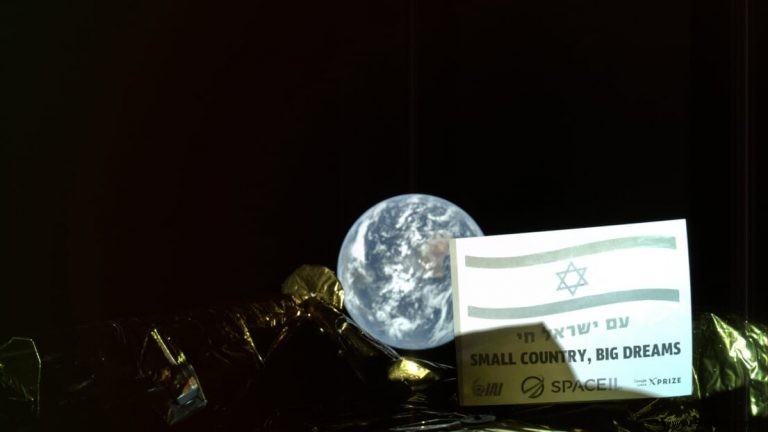After a failure last year, SpaceIL, an Israeli non-profit organization, will attempt to land on the Moon again with not one, but two landers. The launch of this ambitious mission is scheduled for the first half of 2024.
In February 2019, a spacecraft signed by the Israeli non-profit organization SpaceIL took off from Florida aboard a SpaceX rocket with this ambitious goal:to land on the Moon . If everything had gone as planned, then Israel could have become the fourth country to land a spacecraft on our satellite . Unfortunately, this moon landing, attempted about two months after launch, ended in failure. The main engine of the Beresheet (the name of the vessel) indeed failed during its descent, before coming to crash on the surface, in the middle of the Sea of Serenity.
Despite this crash, those in charge of the mission had then drunk the glass half full. "Well, we didn't succeed, but we definitely tried “, had notably underlined the billionaire Morris Kahn, who partly financed this program. “I think getting to where we have been is really amazing. We can be proud “.
NASA also wanted to reassure SpaceIL:"space is difficult, but it is worth taking risks “, recalled then Thomas Zurbuchen, deputy administrator of the direction of the scientific missions of the American agency. "If we were successful every time, we wouldn't get any rewards. It's when we keep trying that we inspire others and achieve greatness “.

And that's good, because SpaceIL intends to try again, with a "Beresheet 2" mission that seems to be taking shape for 2024. This one is even more complex than the first. The Israeli organization intends to send not one, but two landers accompanied by an orbiter . The budget for this new project will be substantially the same as last year (approximately 82 million euros ).
These two landers will be much smaller than their predecessor:approximately 118 kilos each against just under 600 kilos for Beresheet. Who says "two landers" also says "two landing sites". On the other hand, SpaceIL has not yet communicated on the two chosen environments. The orbiter will orbit the Moon for at least two years.
SpaceIL hopes that international partnerships can cover about half the cost of this mission. Kfir Damari, co-founder of the organization, said the UAE was one of seven nations interested in participating . However, he declined to name the other six. The Israel Space Agency is also likely to fund some of it. For the rest, SpaceIL will have to raise funds from private donors.
Finally, let's remember that the first Beresheet mission had initially been developed as part of the Google Lunar XPRIZE competition in 2007. At the time, this prize was to reward the first company private company that would manage to land a machine on the Moon. None of the finalists had finally managed to meet the challenge on time. However, SpaceIL, which was among the finalists at the time, had persevered thanks to donations from philanthropists.